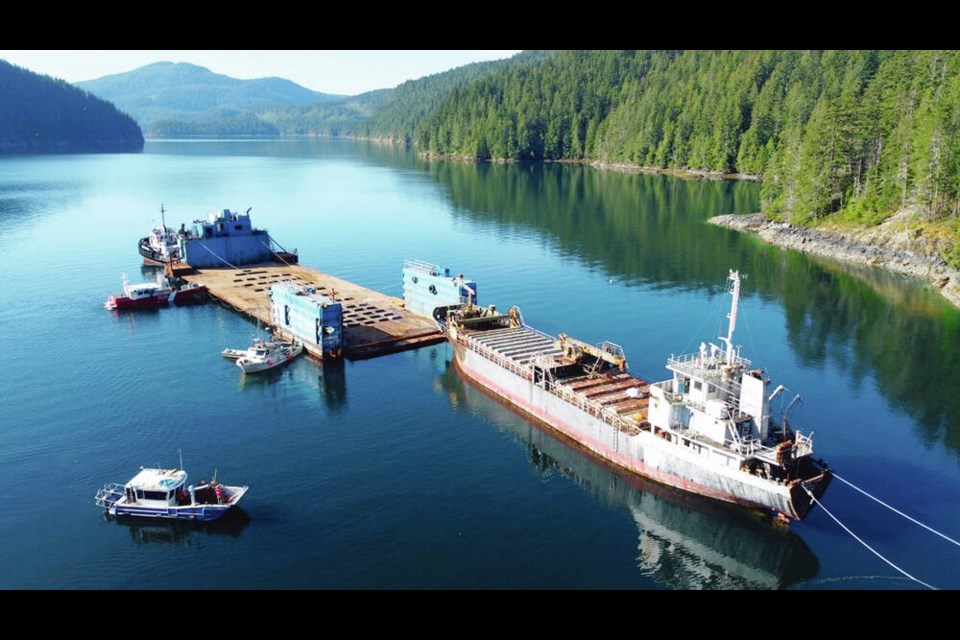On Oct. 16, 2009, Canadian officials intercepted the MV Ocean Lady off the west coast of Vancouver Island while it was carrying 76 Tamil asylum seekers from Sri Lanka who subsequently applied for refugee status.
After years of sitting idle and deteriorating in Desolation Sound, the former cargo ship is being taken to Campbell River to be dismantled.
The Canadian Coast Guard announced Monday that the vessel, deemed abandoned, had been removed from Desolation Sound, under the authority of the Wrecked, Abandoned or Hazardous Vessel Act. A submersible drydock dubbed Cannonball was used to transport the vessel and will be the deconstruction platform for the ship.
It will be taken apart by Marine Recycling Corp., chosen after a competitive bid process. The contract requires that the work be carried out in an environmentally compliant way. This includes salvaging materials and recycling scrap metal.
In 2021, the Canadian Coast Guard removed hazardous substances from the vessel, including 32,000 litres of fuel, oil and oily waste water. The vessel was still considered a hazard and the decision was made for it to be deconstructed in order to protect the environment.
Abandoned vessels have been a years-long issue on B.C.’s coast. Since 2016, the federal government has backed close to 500 projects to remove boats abandoned on Canada’s shores.
Built in Japan in 1990, the Ocean Lady has also been known as Princess Easwary. Its latest name is MV Mini Fusion.
In the years after Ocean Lady’s arrival, federal officials were unable to identify the ship’s owners. The Federal Court of Canada granted permission for the vessel to be sold in order for Canada to try to recoup $2.4 million for custody, storage, care and maintenance costs. During that time, it was at the Public Works Government Services Canada Marine Base on Annacis Island.
It is unclear what has happened to the vessel since then. A 2020 survey to gauge its condition and if it was seaworthy said it was under private ownership, stored at Doctor Bay in Desolation Sound. The report found numerous areas of rust and corrosion on the ship, which was listing on its port side.
The ship first came to Canada’s attention on Oct. 15, 2009.
Police moved in the following day in the late afternoon. The 56-metre cargo ship was apprehended in Canadian waters in the Strait of Juan de Fuca between Port Renfrew and Victoria and was taken to Ogden Point, escorted by several RCMP vessels and the Canadian frigate HMCS Regina.
Canada Border Services Agency took control when the boat tied up at Ogden Point.
Bystanders watched as passengers were led off the boat three at a time. Their faces were shielded, they walked under large black umbrellas along a walkway covered in blue tarpaulins.
By the fall of 2010, most of the 76 men were said to be living in Toronto.
Canada Border Services Agency was unable on Monday to provide an update on their status.
It had been reported several years ago that some had been accepted as refugees in the wake of Sri Lanka’s civil war, some were ordered to be deported and others were appealing Canada’s decision to reject their refugee claims.
>>> To comment on this article, write a letter to the editor: [email protected]



